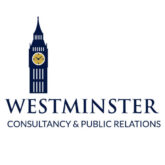In an era where international relations are no longer the exclusive domain of presidents, prime ministers, and foreign ministers, a new force is emerging on the global stage: parliamentary diplomacy. Members of Parliament (MPs) are increasingly stepping beyond their domestic chambers to engage directly with their counterparts worldwide, shaping conversations on peace, human rights, trade, and climate change.
From Observers to Influencers
Traditionally, MPs were seen as observers of foreign policy, scrutinizing decisions made by governments rather than actively participating in shaping them. Today, however, parliaments are not only debating international issues but also forming friendship groups, caucuses, and inter-parliamentary networks that connect legislators across borders. This shift reflects the growing recognition that diplomacy is also about building trust and dialogue among citizens.
“Diplomacy today is not just government-to-government — it is people-to-people, and MPs are at the forefront.”
Why MPs Matter in Diplomacy
MPs bring a unique set of qualities to international affairs:
Legitimacy and representation: MPs are directly elected, giving them democratic credibility when advocating abroad.
Agenda-setting power: Through parliamentary debates, motions, and resolutions, they can influence government policy and raise international visibility on key issues.
Cross-party collaboration: Parliamentary groups often bring together diverse political voices, enabling dialogue where executive channels may be blocked.
Advocacy for human rights and justice: MPs frequently champion causes that resonate with civil society, from supporting journalists under threat to pushing for ceasefires in conflict zones.
A Tool for Peace and Justice

Parliamentary diplomacy has proven particularly valuable in times of crisis. For example, MPs have been instrumental in calling for humanitarian access in war zones, advocating for recognition of statehood, or urging accountability for violations of international law. Their interventions may not carry the same weight as formal treaties, but they can shape public opinion, build momentum, and pressure governments into action.
Opportunities for the Future
As global challenges grow more complex — from climate change to digital security — parliamentary diplomacy will continue to expand. MPs are uniquely positioned to ensure that diplomacy reflects the concerns of ordinary people rather than remaining a conversation among elites.
“MPs are well placed to bridge the gap between citizens and international institutions.”
Conclusion
The rise of parliamentary diplomacy is not a passing trend; it is a sign of the changing nature of international politics. At Westminster Consultancy, we believe this growing role deserves close attention. For businesses, NGOs, and policymakers alike, understanding how MPs shape global debates is not just useful — it is essential for navigating today’s interconnected world.

